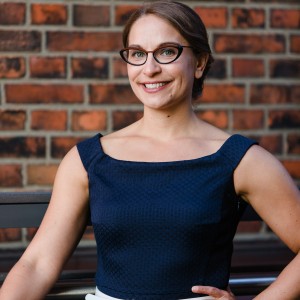Sarah Surak, Ph.D.
smsurak@salisbury.edu
Salisbury University

Phone: 4106773879
Address: 1101 Camden Avenue
City: Salisbury, Maryland - 21801
Country: United States
About Me:
Dr. Sarah Surak holds a joint appointment as Associate Professor in the Departments of Political Science and Environmental Studies at Salisbury University. Her research spans the topics of environmental political theory, social theory, civic engagement, and critical public administration, and has appeared in journals such as New Political Science, Capitalism Nature Socialism, Administrative Theory & Praxis, and the Journal of Higher Education Outreach and Engagement. Her book, Governing Waste: Politics, Process, and Public Administration (expected Routledge 2019), assesses the practices of sustainability and waste management by municipal authorities. Dr. Surak also co-Directs Salisbury University’s Institute for Public Affairs and Civic Engagement. With her colleague, Dr. Alexander (Sandy) Pope, she oversees daily operations as well as coordinates a multi-year research project to collect and analyze data on the delivery of a civic engagement curricular and co-curricular programming. Surak and Pope 2019 are the recipients of the Wilson H. Elkins Professorship from the University System of Maryland to support these efforts.
Research Interests
Environmental Policy
Public Administration
Political Theory
Public Policy
Urban Politics
Civic Engagement
Discard Studies
Critical Theory
Environmental Political Theory
Modern Political Thought
Sustainability
Countries of Interest
United States
Germany
My Research:
My scholarship centers predominately in two research areas. First, I am particularly interested in the politics of waste/ing and political and economic governance of garbage. In this, I connect the localized management of municipal solid waste stream to larger, globalized “waste chains.” Second, my pedagogy scholarship explores how faculty incorporate civic engagement experiences in the classroom setting.
Publications:
Journal Articles:
are an increasingly popular method of raising awareness of what we produce, consume, and throw away. As social critique, these displays examine the political and economic causes and consequences of waste production and resulting ecological degradation. Drawing on Herbert Marcuse’s conceptions of aesthetics, liberation, and ecology in capitalism, this article attempts to discern where we might find hope, encouragement, and active imagination of another possible future through artistic installations. This article cautions that garbage art may both open and close off creative and imaginative spaces for transformation to a liberated society. Differentiating between two categories of art installations, this article explores how installations can reflect back to us our complicated relationship with waste and consumer culture, raising questions as to how the aesthetic realm might serve as a springboard for critique of capitalism.
Growing volumes of waste create ever more management responsibility and financial burden for public administrators, particularly on the local level. Theorists and practitioners make a compelling argument that waste disposal can and should be fully internalized, resulting in a utopian reutilization of waste in a closed circuit of the management of production, consumption, and recycling. Drawing upon the work of Herbert Marcuse, this article identifies the importance of utopian imagining of administration to provide a foundation for new social and environmental relations of human liberation and nondomination. McDonough and Braungart’s “cradle to cradle” model and updated “upcycle” model, the focus of this article, fall into the trap that Marcuse warned about: assuming as necessary the wasteful material conditions of capitalism. While providing a rhetorically convincing description of the technics of a utopian society, the analytic argument ignores the constraints of capitalism in managing waste creation. While their vision is not ultimately liberatory, the appeal of McDonough and Braungart’s proposal is as a discussion point of the limits of current imaginings, opening a space for the reimagining of organizational structures and administrative practices.
Book Chapters:
With Christopher Jenson, Alexander Pope, IV., and Alison Rios Millett McCartney This chapter examines faculty development programming designed to support and encourage the incorporation of civic engagement assignments within normal curricular offerings. By assessing faculty development seminars at two comprehensive institutions, the authors identify the perceived benefits of participants as well as where improvements might be made. The purpose of this chapter is to serve as a model for universities developing programs to support faculty efforts. Through focus groups with participating faculty, the authors find that key factors for success included financial, logistical, and programmatic support as well as the institutionalization of the recognition of efforts in merit, tenure, and promotion processes